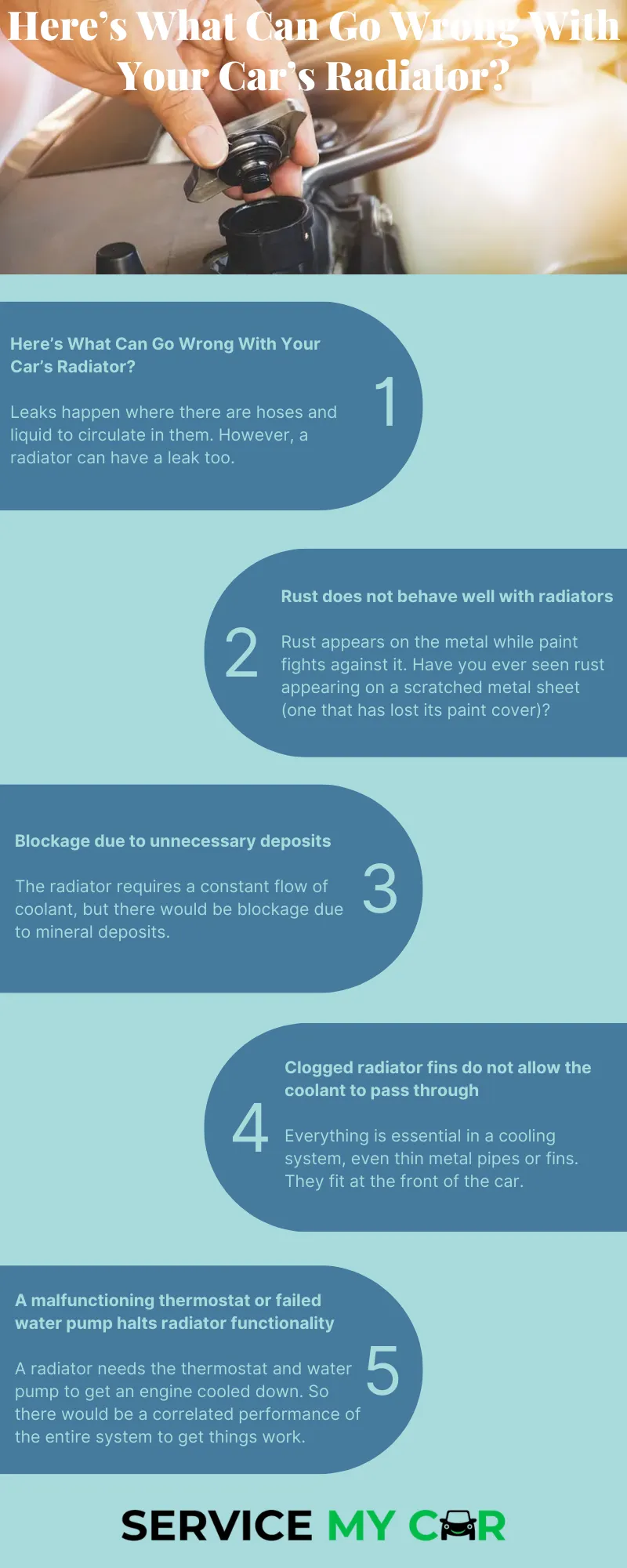
What word should define “radiator”? Of course! The defender! It perfectly defends the engine from heat so that it can work properly. A radiator, however, frequently goes unnoticed until a problem manifests. When a problem makes its job difficult, it shouts loudly.
There is a mechanism under the hood to manage excessive heat. It involves a radiator, thermostat, and pump to complete a cooling system. The fluid that circulates around the engine block to disperse heat requires a radiator to release the heat, which prevents overheating. When smoke is coming from the radiator, the radiator has failed to perform as intended, which has led to the vehicle overheating.
So it is necessary to learn about the potential issues with radiator. And, of course, prevent them before they become hazards.
Leaks make radiator less efficient
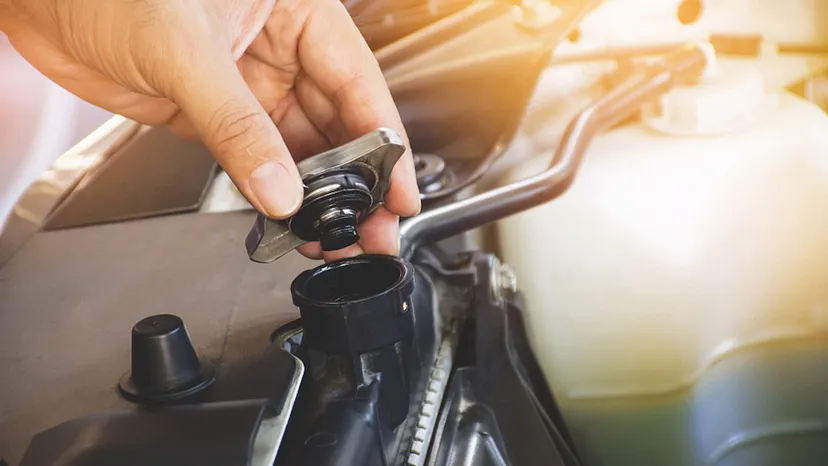
Leaks happen where there are hoses and liquid to circulate in them. However, a radiator can have a leak too.
As coolant starts to circulate from the radiator to the heated running engine and it absorbs heat before returning back to the radiator through same hoses. Therefore, hoses that carry the heated coolant are always under immense pressure and are prone to wear and tear.
Once one or more hoses sustain some sort of damage, there will always be a way for leakage. And, when leakage happens, the coolant goes short, and cooling of the heated engine is hampered. This leads to a car’s engine overheating.
When there is a coolant leak, you find green fluid under your vehicle. It smells kind of sweat. Sometimes, especially in the case of old cars, a radiator might leak due to a rusted body.
However, you can take preventive steps by availing yourself of an inspection of the entire cooling system and even the replacement of hoses during routine car maintenance. You can approach Service My Car for an expert’s assessment and an instant solution.
Rust does not behave well with radiators
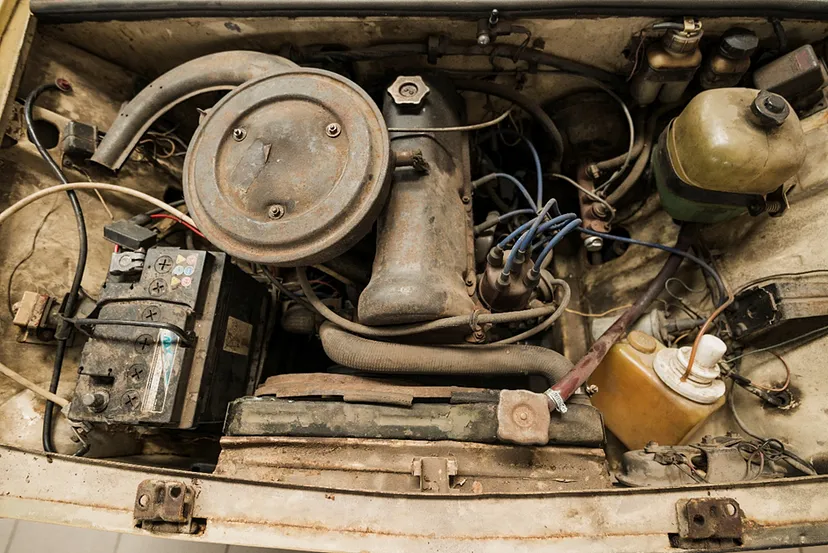
Rust appears on the metal while paint fights against it. Have you ever seen rust appearing on a scratched metal sheet (one that has lost its paint cover)? In the case of cars, it is quite visible on the outer surfaces, but what about the metal components inside the vehicle?
When air, metal, and liquids meet, oxidation occurs, as does rust. All those ingredients are present in your radiator, which means rust is a real threat. If your radiator gets too rusted, it can end up with congestion or otherwise malfunction.
In case your car is showing severe signs of consistently running hot, it could have a rusted radiator. However, it is hard to find rust that appears inside the radiator. But, a brown-colour coolant is a definite sign of rust appearance. These types of incidents are most common in cold weather.
Blockage due to unnecessary deposit
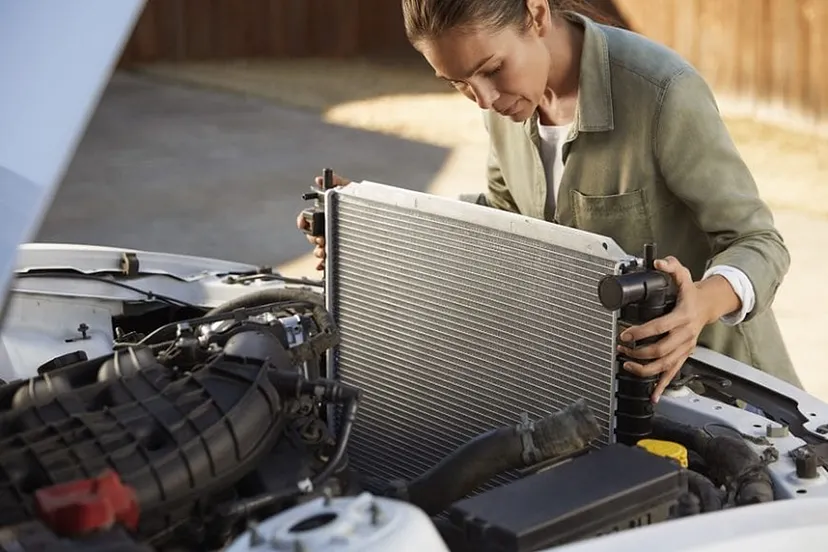
The radiator requires a constant flow of coolant, but there would be blockage due to mineral deposits. Apart from mineral deposits, there could be other things that can block radiator.
This makes the radiator work harder to maintain flow, and most of the time, it fails to provide enough coolant to the engine. There would be heat all around. If there is no rust and any instance of leakage, just check for the mineral deposit.
However, a coolant flush might work to clean any deposit inside, including rust. Just visit your nearest Service My Car shop for a thorough inspection.
Clogged radiator fins do not allow the coolant to pass through
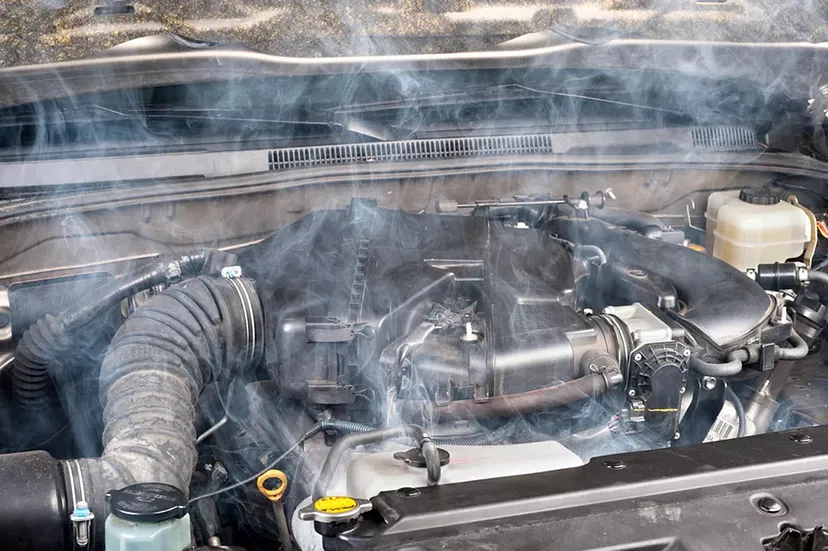
Everything is essential in a cooling system, even thin metal pipes or fins. They fit at the front of the car. The hot coolant is pushed into these fins so that cool air can pass through them and dissipate heat from the coolant.
This is the place where heat gets released from the coolant. Therefore, if these fins get clogged, there would be no space for air to circulate, and eventually there would be inefficient heat release.
A malfunctioning thermostat or failed water pump halts radiator functionality
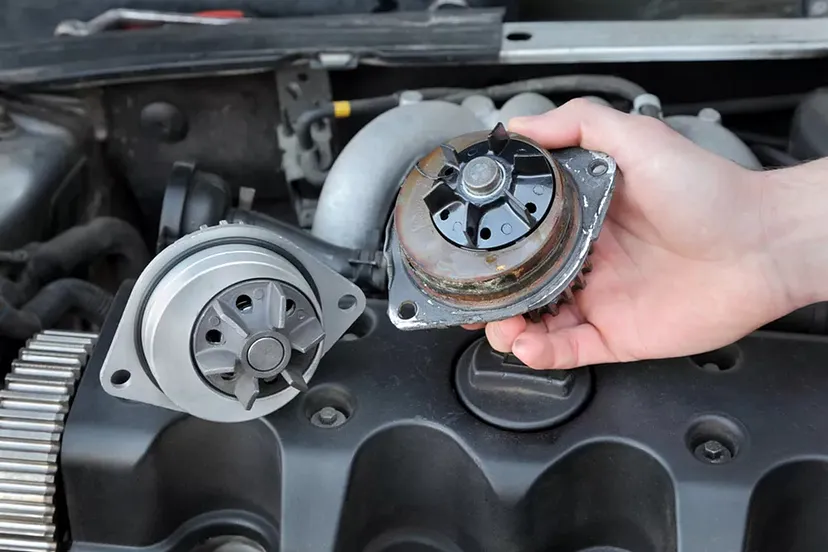
A radiator needs the thermostat and water pump to get an engine cooled down. So there would be a correlated performance of the entire system to get things work. When the thermostat does not work properly, there is an improper supply of coolant to the radiator. Similarly, a failed water pump cannot pump the coolant into the system. In both conditions, there would be less cooling or a lack of cooling under the hood, and it would definitely get heated in no time. A radiator is not going to work with a malfunctioning thermostat or defective pump.
Can you expect your car to run without the engine? Of course not, so the engine also needs a radiator to remain cool. Any problem would definitely hurt the engine and other components under the hood. In case you own a Nissan car, and you are looking for engine repair then we would like to recommend Service My Car to get the best engine repair for your Nissan car in the town. Service My Car not only provide Nissan engine repair but also provide nissan service, nissan repair, nissan battery replacement and maintenance services.
Service My Car helps you keep your vehicle working in excellent condition, enabling prompt solutions for a number of problems. Do not delay your visit to one of the nearest workshops of Service My Car.
Or just book car service or order a car repair quote on our website or app.

Be First to Comment